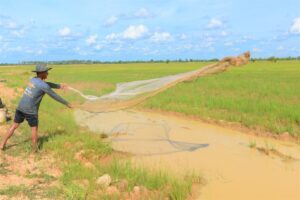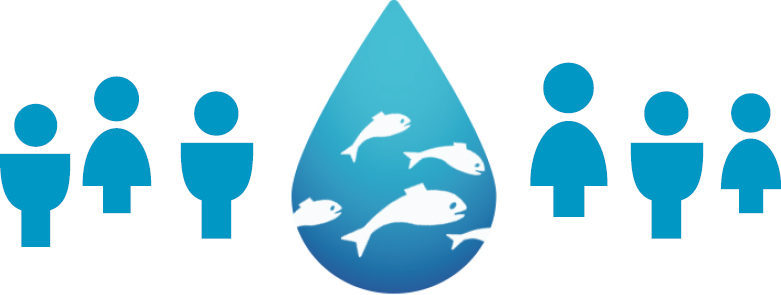Sustainable Aquatic Foods project by BMZ
‘Sustainable Aquatic Foods’ – a new BMZ project

The German Federal Ministry for Development and Economic Cooperation (BMZ) commissioned the new project “Sustainable Aquatic Foods”, which started in January 2024 and will be implemented by the German Development Cooperation (GIZ) as part of the Special Initiative “Transformation of Agricultural and Food Systems” (SI AGER). The main objective of the project is to enhance the integration of aquatic foods from sustainable aquaculture and fisheries into the food systems in the partner countries to strengthen local food and nutrition security and fight poverty. It has a global scope, but initially operates regionally with a focus on the African partner countries Zambia, Uganda, Madagascar, Malawi and a regional component at the Southern Africa Development Community (SADC). The project design builds on experiences and successful approaches of the GIZ global programme “Sustainable Fisheries and Aquaculture” which has been running successfully for the last eight years and will end in 2024/25.
Activities will cover multiple levels of the food system. Through capacity development approaches, small-scale actors in fisheries and aquaculture will establish sustainable ecosystem-based practices. Aquaculture farmers will be trained in innovative sustainable fish farming and business techniques to increase their productivity and overall income. In addition, producers will be supported in the integration into the formal aquaculture/fisheries sector. New and existing cooperations and networks will strengthen participation and the economic and social situation of small-scale actors. Inclusive business models will ensure better access to loans, technology and knowledge in the private sector e.g. through the development of private-public partnerships. The project will incorporate inclusive and participatory approaches into the project design to include voices of marginalised groups like small-scale fishers and women. Emphasis will be placed on the empowerment of women-led organisations and their participation in policy-making processes to further work towards gender equity following the Feminist Development Policy by the BMZ.
At a larger scope, the project will support the political partners to further install frameworks for a sustainable development of the aquaculture and fisheries sector. The South African Development Community (SADC) will be strengthened in the establishment of a sustainable ecosystem-based fisheries management for the region. The goal of the cooperation is to enhance processes and structures of the SADC Monitoring, Control and Surveillance Coordination Center (MSC-CC) in the fight against illegal, unreported and unregulated (IUU) fishing. Furthermore, the project will promote good governance schemes to support an equitable transformation of agriculture and food systems. Political advisory services and capacity development will also include the development of guidelines for sustainable net cage aquaculture, as this is a dominant aquaculture technique in the partner countries. Digital knowledge platforms will be set up to share best practices and approaches between the project countries as well as other projects. This will ensure a sustainable and long-term implementation of the project activities.
Contact:
Friederike Sorg (Friederike.sorg@giz.de)
Pierre Guillibert (Pierre.guillibert@giz.de)
